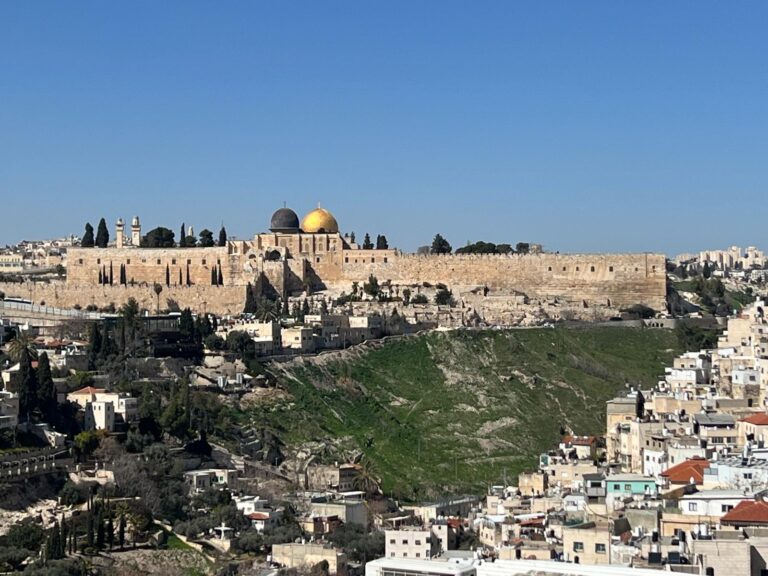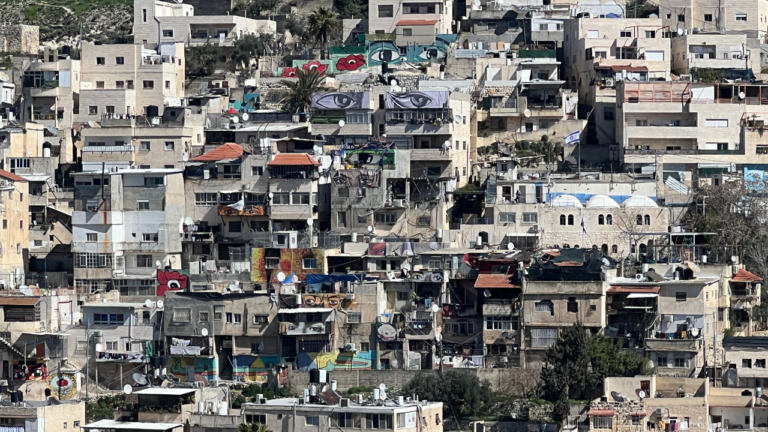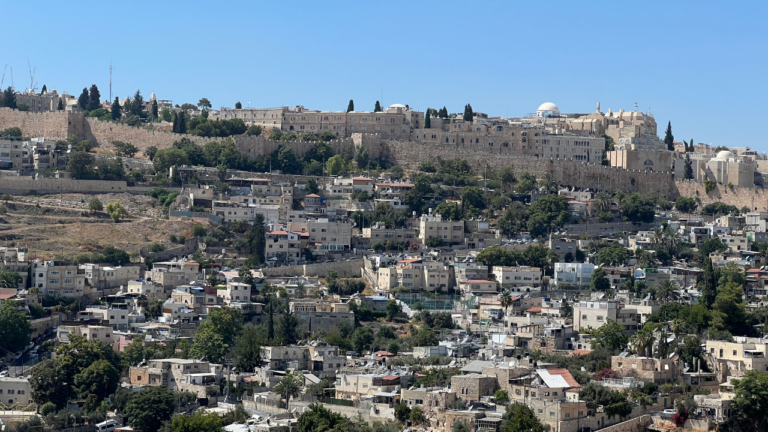Jerusalem – The Conclusion Of All Our Prayers
In the Ashkenazi tradition, the final stage of the Seder – Nirtzeh – opens with a the prayer/song of “Next year in Yerushalayim!” What is the meaning of this custom?
While many commentators emphasize the unique relationship between Seder night and Jerusalem (as ideally the Seder should be experienced in Jerusalem with a Korbon Pesach), R. Yissachar ben Tzvi Tamar in his commentary to the Talmud Yerushalmi “Alei Tamar” sees it as part of a broader pattern. He writes that at the conclusion of many mitzvot and even books we mention Jerusalem and the Beit HaMikdash. Most famously, we conclude Nei’lah on Yom Kippur with an identical song. But this is also the conclusion of every Shemona Esreih when we pray for the Beit HaMikdash and invoke the Jerusalem of old.
Similarly, Masechet Ta’anit, which at its end deals with the celebration of Yom Kippur and Tu B’Av, concludes with a prayer for the rebuilding of the Beit HaMikdash. Similarly, according to some, Pirkei Avot ends with such a prayer. And the list goes on. Why do such a wide array of mitzvot and mitzvot conclude with a prayer for Yerushalayim and the Beit HaMikdash?
The shortcode is missing a valid Donation Form ID attribute.
The Alei Tamar explains that these conclusions are a fulfillment of the following midrash about prayer. The Midrash teaches:
People’s conversations are always about land: ‘Did you work the land or did you not work the land?’ The prayers of human beings all relate to the land – ‘Master let the land produce!’ [In contrast] all of the prayers of the Jewish people relate to the Beit HaMikdash – ‘Master, rebuild the Beit HaMikdash!”
The Alei Tamar explains that the Jewish people’s customs to invoke Jerusalem and the Beit HaMikdash are based on this midrash. Whenever we engage in a prayerful activity – be it actual prayer, a mitzvah that has an aspect of longing for redemption to it, or certain books of the Mishna that have a more prayerful aspect to them – we must always pray for the Beit HaMikdash.
However, this midrash seems to assert a fact without an explanation. Why should all of our prayers, no matter what they seem to be for, really in essence be a prayer for Jerusalem? Perhaps the idea is that when we pray we are asking God to fix something that is lacking in the world. A lack of health, financial stability, a loving family and friends and spiritual growth all give rise to prayers. In essence, though, all of these lackings stem from a single point – the lack of God’s presence in this world. Once God returns to his earthly abode then all of the problems will automatically disappear.
Therefore, at the end of our prayers, be it a daily Shemonah Esreih or the Seder of Pesach, we pray for Jerusalem and the Beit HaMikdash. We realize that all of our personal and communal hopes and desires are dependent on this single point of God once again making Jerusalem into his terrestrial abode. May it happen soon.



